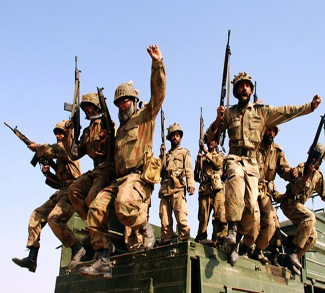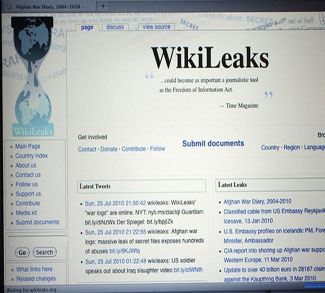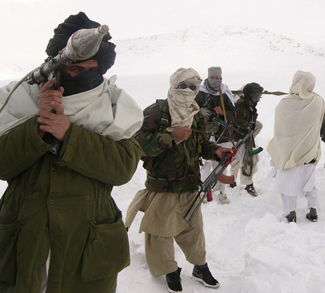FORECAST
A pre-dawn raid conducted in Pakistan by US commandos from Afghanistan has been condemned by Pakistani officials as a breach of sovereignty, reflecting concerns that the US’ unilateral operations in the “war on terror” could foment social unrest in Pakistan, undermine the civilian government, and imperil US-Pakistani relations.
The raid occurred last Wednesday when three US helicopter gunships deployed Afghanistan-based troops to the Pakistani town of Musa Nikow in South Waziristan in order to capture high-value Pakistan Taliban and al-Qaeda targets. US troops also raided three houses in the neighbouring village of Jalal Khel, killing 20 people, including women and children.
While this is not the first time U.S. ground troops have crossed into Pakistan in ‘hot pursuit’ of Taliban fighters (U.S. special operations forces and CIA teams regularly engage in covert cross-border activity), this is the most overt full-scale U.S. raid on targets within Pakistan. The bold raid, in conjunction with increased air strikes in Pakistan Taliban and al-Qaeda enclaves, is indicative of President Bush’s desire to capture Osama Bin Laden and Al-Qaeda number two Ayman al-Zawahiri before the end of his term. This in turn would allow the US military to refocus efforts on acrimonious developments in Georgia and check a resurgent Russia.
The US has justified its actions by citing the Pakistani government’s inability to control the volatile northwest tribal areas along the Afghan border where Pakistan Taliban and al-Qaeda militants orchestrate attacks in Afghanistan and Pakistan and plot violence in the West. Also, Islamabad’s decision to engage in diplomacy and cut deals with militants is unacceptable to Washington’s hard power approach. However, the US’ increasingly aggressive pursuit of militants reveals little concern for the war on terror’s domestic implications in Pakistan.
The unilateral nature of U.S. military action in Pakistan is a key national issue, for the repeated violation of Pakistan’s sovereignty has sparked so much outrage that it is likely to foment social unrest, undermine the authority of the new civilian government, and create a backlash within the Pakistani military.
These potential outcomes do not bode well for the US’ working relationship with Pakistan, a key ally on the frontlines. The US must recognize that there are limits to how far it can militarily go in Pakistan, otherwise it risks being a key factor in destabilizing the region.
SUMMARY OF EVENTS: September 1 – 8, 2008
WORLD
Unable to respond militarily when Russia sent troops into Georgia last month, Western nations are now mobilizing with nearly $2B in aid to thwart a key Russian war aim: regime change in Tbilisi.
NORTH AMERICA
United States
The United States on Wednesday announced at least $1 billion in aid to help U.S. ally Georgia rebuild after its conflict with Russia over the separatist enclave of South Ossetia last month.
Banks borrowed more over the past week from the Federal Reserve’s emergency lending program, while Wall Street firms took a pass for the fifth week in a row.
Wall Street dived sharply lower Thursday, sending the Dow Jones industrials down over 300 points on more disappointing economic news: sluggish back-to-school sales and a jump in unemployment claims.
The U.S. vice-president, Dick Cheney, Thursday issued a direct challenge to Moscow’s sway over Georgia, pledging Washington’s support for its eventual membership of NATO, while denouncing Russia’s “illegitimate” invasion.
U.S. Vice President Dick Cheney met with top Ukrainian leaders Friday, calling their country’s relationship with the United States “very important,” as Washington sought to reassure its allies in former Soviet states following Russia’s war with Georgia.
SOUTH AMERICA
Ecuador
Ecuadorian leftist President Rafael Correa has the majority he needs to win a key September 28 referendum to pass a new constitution that would extend his authority over the Andean nation, a poll showed on Tuesday.
Ecuador has decided to close a US drug-interdiction air base in the coastal city of Manta by 2009, ending USSOUTHCOM’s decade-long operations that have been linked to recent Colombian raids on FARC.
EASTERN EUROPE
NATO is continuing to strengthen its naval task force in the Black Sea, a Turkish military source said on Wednesday.
Czech Republic
The Czech Republic wants Washington’s help to upgrade its military transport planes but denied it is seeking a bonus for hosting part of a U.S. missile shield that has fueled tensions with Russia.
MIDDLE EAST
Cyprus
Rival leaders of divided Cyprus launched last-ditch reunification talks on Wednesday to end a decades-old conflict threatening Turkey’s EU membership hopes.
Iraq
Iraq will seek an explanation from U.S. officials about a report asserting the United States spied on Iraqi officials, including Prime Minister Nuri al-Maliki, the Iraqi government spokesman said on Friday.
EAST ASIA
South Korea
South Korea’s chief nuclear envoy on Friday pressed North Korea to halt plans to rebuild a mothballed nuclear plant that makes arms-grade plutonium and instead return to the bargaining table.
SOUTH ASIA
India
The Nuclear Suppliers Group should stay firm in rejecting a U.S. bid to lift a ban on nuclear trade with India, experts said on Tuesday as an official document underscored gaps between the Americans and the Indians on key aspects of their landmark atomic deal.
Pakistan
The Pakistani prime minister, Yousaf Raza Gilani, survived an assassination attempt today, officials said.
Asif Ali Zardari, the widower of former Pakistani prime minister Benazir Bhutto, swept to victory in a presidential election on Saturday.
AFRICA
Libya
Libyan leader Muammar Gaddafi has said oil profits should be given directly to citizens, as part of sweeping economic and political reforms.
U.S. Secretary of State Condoleezza Rice visited Libya this week, the first official trip to the North African country by a top U.S. diplomat in 55 years, the State Department announced.
Zimbabwe
Zimbabwe’s main opposition party has lost faith in power-sharing talks with President Robert Mugabe and will leave him to form a government alone rather than be forced into a deal, a party official said on Thursday.
Marsha Reid is a contributor to Geopoliticalmonitor.com



